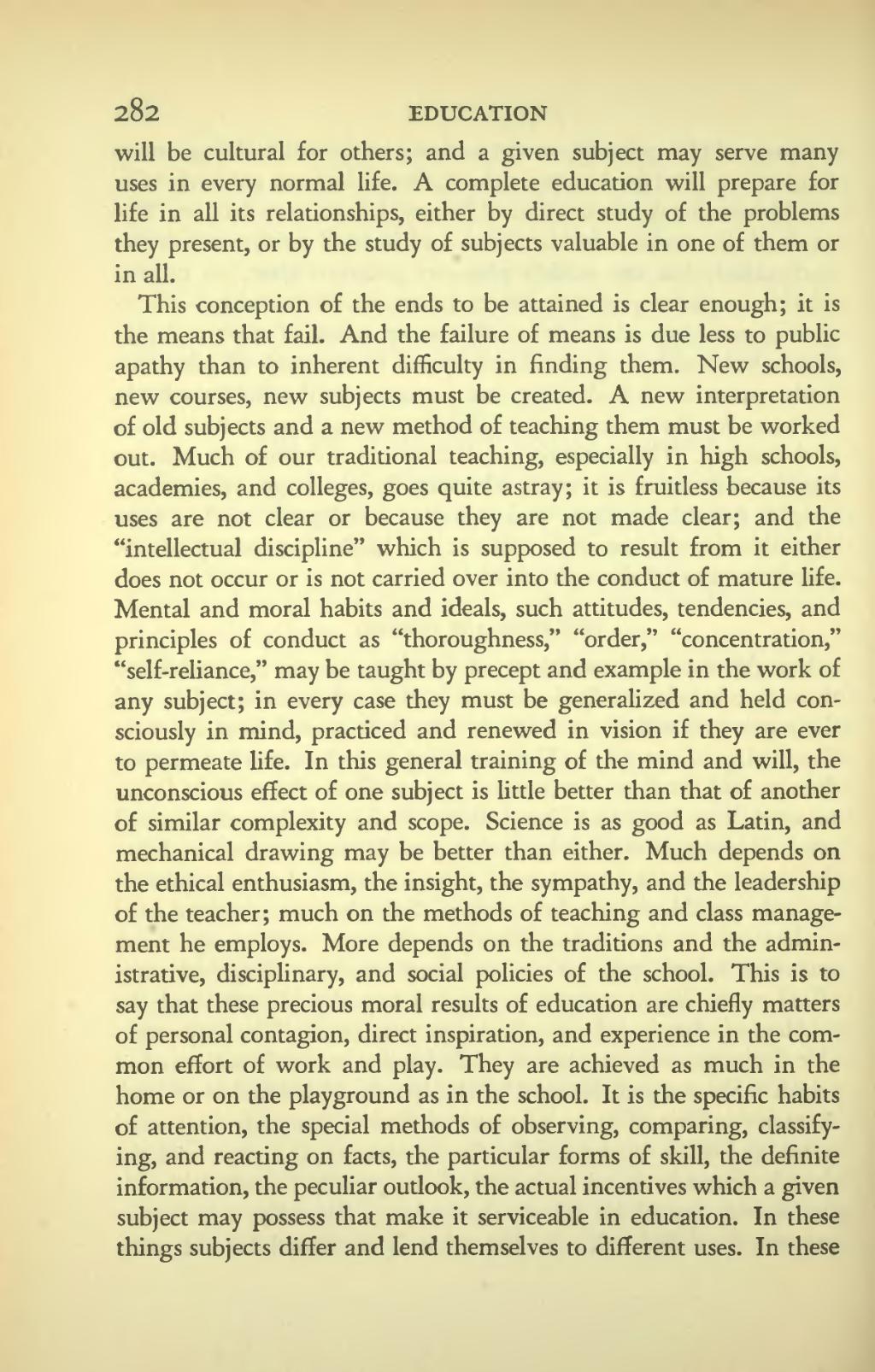will be cultural for others; and a given subject may serve many uses in every normal life. A complete education will prepare for life in all its relationships, either by direct study of the problems they present, or by the study of subjects valuable in one of them or in all.
This conception of the ends to be attained is clear enough; it is the means that fail. And the failure of means is due less to public apathy than to inherent difficulty in finding them. New schools, new courses, new subjects must be created. A new interpretation of old subjects and a new method of teaching them must be worked out. Much of our traditional teaching, especially in high schools, academies, and colleges, goes quite astray; it is fruitless because its uses are not clear or because they are not made clear; and the "intellectual discipline" which is supposed to result from it either does not occur or is not carried over into the conduct of mature life. Mental and moral habits and ideals, such attitudes, tendencies, and principles of conduct as "thoroughness," "order," "concentration," "self-reliance," may be taught by precept and example in the work of any subject; in every case they must be generalized and held consciously in mind, practiced and renewed in vision if they are ever to permeate life. In this general training of the mind and will, the unconscious effect of one subject is little better than that of another of similar complexity and scope. Science is as good as Latin, and mechanical drawing may be better than either. Much depends on the ethical enthusiasm, the insight, the sympathy, and the leadership of the teacher; much on the methods of teaching and class management he employs. More depends on the traditions and the administrative, disciplinary, and social policies of the school. This is to say that these precious moral results of education are chiefly matters of personal contagion, direct inspiration, and experience in the common effort of work and play. They are achieved as much in the home or on the playground as in the school. It is the specific habits of attention, the special methods of observing, comparing, classifying, and reacting on facts, the particular forms of skill, the definite information, the peculiar outlook, the actual incentives which a given subject may possess that make it serviceable in education. In these things subjects differ and lend themselves to different uses. In these
